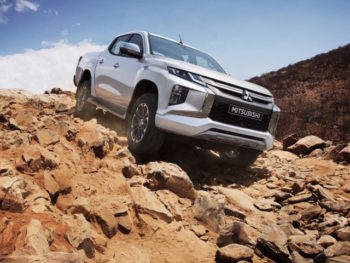Mitsubishi is considering electric or plug-in hybrid version of the new L200 pickup from the mid-2020s, with customer migration accelerated by improving technology and the spiralling cost of complying with diesel emissions regulations.

Koichi Namiki, programme director for the pickup, stressed that diesel remains a good fit in a segment where torque, durability and cost of ownership are the main customer demands. Although electric motors can offer the required performance, the range, cost, weight and size limitations of the batteries is a short-term issue.
However, he added, the tightening compliance and the cost associated with the required upgrades to diesel engines, and ongoing improvements to battery technology, could tip the balance in favour of electrification within the next few years.
“[Electrification] is naturally a long way in the future,” he said. “Pickup trucks are working trucks, they have to be as inexpensive as possible. As you can imagine, diesel engines require a lot of technology [to meet emissions regulations]. So it’s going to become very expensive rapidly, so sometime in the future maybe an electrified vehicle will be less expensive than a diesel.“
It’s a view echoed by corporate vice president of product strategy, Vincent Cobee, who expects PHEV technology from the company’s SUVs to be introduced into commercial vehicles within the next 5-10 years. And, he added, regulatory changes could make this happen very quickly.
“What’s happening in Continental Europe might tip the equation,” he said. “Pickup regulation is forcing the deal. The customer wants torque and towing capacity – fuel economy is a checkpoint, but it’s not the key driver. My assumption is we will live with diesel until Euro 7, and it will become tough between Euro 7 in 2023 and [EU corporate average fuel economy] requirements in 2025. That’s where things might tumble, and they might tumble so quickly that 48-volt would be skipped.”

